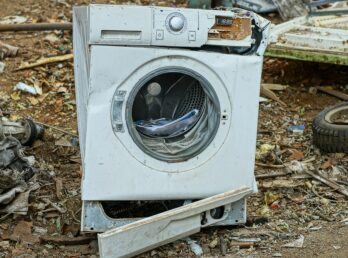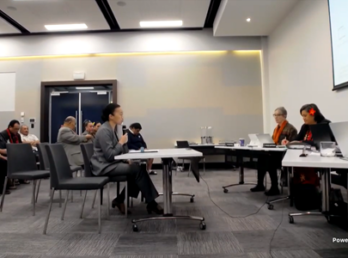Rent Payments: What’s Fair Under Lockdown? articles
Date
31 Mar 2020
Related Expertise
Rent Payments – What’s fair under Lockdown?
Many commercial leases are on the Auckland District Law Society (ADLS) form. Businesses need to check whether their lease is in this form and that it contains a clause 27.5 (pre-Christchurch earthquake leases will not contain this clause) along the following lines:
“If there is an emergency and the Tenant is unable to gain access to the Premises to fully conduct the Tenant’s business from the Premises because of safety to the public… or the need to prevent reduce or overcome any hazard harm or loss that maybe associated with the emergency including:
(a) a prohibited or restricted access cordon applying to the premises;….
(c) restriction on occupation of the premises by any competent authority
Then a fair proportion of the rent and outgoings shall cease to be payable for the period commencing on the date when the Tenant became unable to gain access to the Premises to fully conduct the Tenant’s business from the Premises until the inability ceases.”
If so, the first consideration is whether the lock-down situation triggers the clause for the particular tenant and the particular circumstances. For most tenants who are not providing ‘essential services’ this will be the case but even then usage of the premises may still be available to the tenant in some form. These and tenants providing ‘essential services’ in some form (e.g. ‘financial services’) need further legal advice.
If the clause is triggered then the next consideration is how the ‘fair proportion’ assessment is reached and the landlord’s and tenant’s position in dealing with such a clause.
Fair Proportion
Clause 27.5 of the ADLS lease was drafted as a result of the Christchurch earthquake. It was intended to cover all situations – e.g. red-zone (i.e. no entry at all) and repair (which might involve some use). Rather than having two separate clauses dealing with each, the clause was drafted as a catchall provision with the ‘fair proportion’ applying to the partial use situation and equaling zero (ie a 100% rent abatement) in the ‘no use’ situation.
The Courts subsequently confirmed that a fair proportion of the rent and outgoings can be 100% in a situation where, for example a property was ‘red zoned’ so that no access at all was allowed. Even in a case where only repairs were being undertaken to a building, allowing the tenant to carry on business, the Court allowed 100% rent reduction for 2 months.
If a COVID-19 situation dispute comes before the Court, we expect the Court’s focus to be on what the landlord is providing as part of its consideration for the lease contract and of which the tenant receives a benefit, not on other circumstances of the landlord or the tenant (for example we have seen landlords asking for tenant circumstances to be outlined – this is totally irrelevant). Payment of rent is not dependent on use or tenant circumstances. A tenant would not be expecting a discount if it had a property that it no longer needed or no longer could afford. The obligations under the lease do not take that in to consideration, and neither should they. Rent relief under this clause should be treated in the same way.
What is important is whether the premises are available to be used. The focus should be on what the landlord continues to provide in terms of its contractual obligations under the lease, not the circumstances of the tenant.
It should not be assumed that the Courts will take a damages or abatement approach where there is a very specific clause providing a specific remedy such as here. In some instances where the landlord is unable to provide quiet enjoyment of premises to a tenant, an abatement can be 100%.
One suggestion of value we have seen is that the property can still be used to store tenant chattels and running its file servers from it . The counterargument is that storage of office equipment is more a consequence of the type of emergency rather than a benefit to the tenant.
Other elements the landlord can continue to provide of benefit to the tenant might be such things as ongoing security checks, insurance and fire prevention services. These may be of continuing value to the tenant but are generally already covered in OPEX. Other normal OPEX charges for such things as common area cleaning etc. could not be sustainable by the landlord. The landlord and tenant should work together to identify the OPEX benefits that can continue. The way this would be assessed for ‘fair proportion’ is for the tenant to continue to pay its share of actual OPEX but only for these items.
For the minimal property usage supplied by the landlord (e.g. for a server still located and running in the premises), a rental equivalent of, say, 10% of the annual rent might be appropriate (ie a 90% abatement). Arguably, in a ‘no use’ or ‘red zone’ type scenario a 10% rental payment is more than fair.
These considerations however exclude ongoing landlord/tenant relations and they will differ between premises. Every effort should be made to find an agreement with the landlord as the general obligation to pay rent remains and if no such agreement can be reached there is legal authority that the tenant is still required to pay such sum it considers a fair proportion However, ‘bottom line’ expectations need to be adjusted to this near ‘red-zone’ situation.
For those not on an ADLS lease, your documents may contain similar clauses. However, this will need to be looked at on a case by case basis.
DISCLAIMER: EVEN WITH A CLAUSE 27.5 IN YOUR LEASE, EVERY LANDLORD/TENANT SITUATION IS DIFFERENT. ACCORDINGLY THIS OUTLINE CANNOT BE TAKEN AS LEGAL ADVICE AS SUCH AND YOU SHOULD CONSULT YOUR OWN LEGAL ADVISOR OR US FOR LEGAL ADVICE ON YOUR PARTICULAR CIRCUMSTANCES.
Subscribe
Get insights sent direct to your email.


































